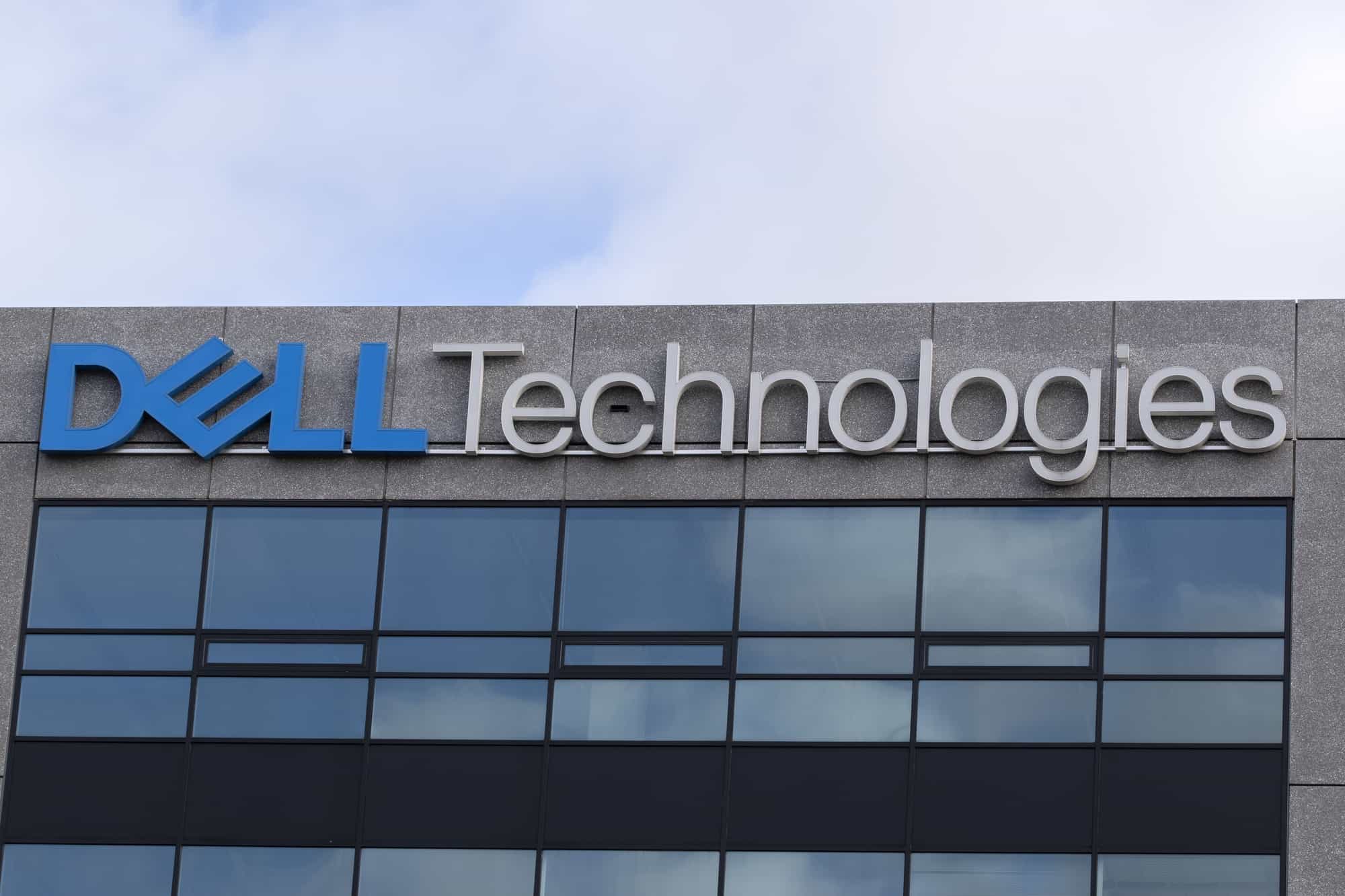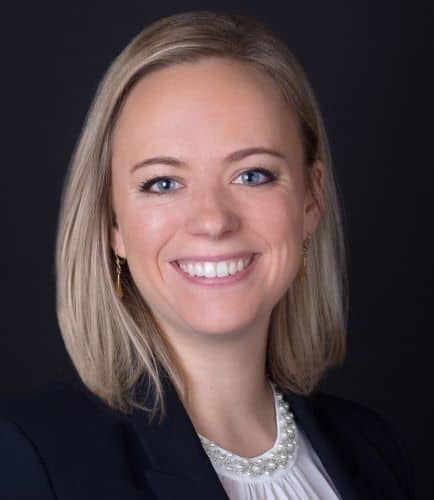To make Wealthtender free for readers, we earn money from advertisers, including financial professionals and firms that pay to be featured. This creates a conflict of interest when we favor their promotion over others. Read our editorial policy and terms of service to learn more. Wealthtender is not a client of these financial services providers.
➡️ Find a Local Advisor | 🎯 Find a Specialist Advisor

Do you work at Dell Technologies? Get the resources you need and expert insights from financial professionals who specialize in helping Dell Technologies employees make the most of their compensation package and benefits.
Whether you’re a new Dell Technologies employee or you’ve moved up the ranks into a management or executive leadership role over a multi-year career, it’s important to make smart money moves with your income and employee benefits. For example:
✅ Do you know the right moves to make to get the greatest value from the Dell Technologies benefits available to you?
✅If you’re thinking about leaving Dell Technologies for another job or planning to retire from the company in a few years, are you taking the right steps today to ensure you will receive all of the compensation and benefits that you’ve earned?
Get the Most Value from Your Dell Technologies Benefits and Compensation Package
Throughout the year, Dell Technologies provides its employees and executives with updates about their benefits, ranging from health insurance and health savings plans to retirement plans like a 401(k), deferred compensation plans, and stock options. While the company offers many useful resources and access to knowledgeable staff who can assist with questions, you’ll also find financial professionals not affiliated with Dell Technologies who specialize in helping Dell Technologies employees make the most of their income and benefits.
Whether you work in the Dell Technologies headquarters in Round Rock, Texas, another office location around the country, or remotely from home, you may have questions about your compensation package and benefits better suited for a financial professional who can offer unbiased advice and guidance.
For example, sensitive topics like discussing the steps you should take before quitting your job at Dell Technologies to work elsewhere, protecting yourself in advance of a corporate layoff, or deciding when you should plan to retire are all conversations that may be more comfortable with a trusted financial advisor.
Should you hire a Dell Technologies specialist financial advisor or an advisor close to home?
You’ll likely find dozens of nearby financial advisors well-suited to help you reach your money goals with a personalized plan. But it may be more difficult to find a financial advisor who specializes in serving Dell Technologies employees.
Fortunately, many financial advisors offer virtual services so you can meet online no matter where you (or they) live.
This means you can choose to hire a specialist financial advisor who lives hundreds of miles away if you decide their knowledge and experience working with Dell Technologies employees is a better fit to help with your unique needs.
💡 In the Q&A below, you’ll gain insights from financial advisors who work with Dell Technologies employees to help them make smart decisions to get the most value from their compensation and benefits, reduce their money stress, and prepare for a comfortable retirement.
🙋♀️ Do you have questions not yet answered? Use the form below to submit questions anonymously and watch this article for updates with answers to your questions. You can also reach out to the financial advisors below to set up an introductory call or contact them with your questions by email.
This page is organized into sections to help you quickly find the information you need and get answers to your questions.
💸 Smart Money Insights for Dell Technologies Employees & Executives
Q&A: Financial Planning Tips for Dell Technologies Employees & Executives
Get to Know:
✅ Emily Rassam and Richard Archer | ✅ Brian Fry
Answers to Dell Employee Questions with Emily Rassam and Richard Archer (Archer Investment Management)
With a focus on serving professionals in the technology industry, the financial advisors at Archer Investment Management help their clients get the most value from their benefits and compensation package so they can enjoy life and feel confident about their financial future. Based in Charlotte, North Carolina, and Austin, Texas, respectively, Emily Rassam and Richard Archer specialize in offering financial planning services to Dell Technologies employees.
Q: As a financial advisor with experience helping Dell Technologies employees save for their retirement, how do you help them make the most of their employee benefits?
Emily: At Archer Investment Management, we specialize in working with mid-career technology professionals. We have several Dell Technologies employees as clients and are familiar with the company’s employee benefit plans, retirement plans, equity compensation packages, and ancillary benefits.
More importantly, we are acutely aware of the financial planning needs of technology professionals and how their Dell benefits fit into an overall financial plan, including long-term planning, goal setting, tax planning, and estate planning. We start by building a financial personality profile and risk tolerance assessment to understand your relationship with money and your comfort level with risk.
Q: When you first speak with a Dell Technologies employee, what questions do you like to ask to better understand their unique circumstances and determine how you can best help them achieve their goals?
Richard: Our detailed onboarding process includes conversations about your life goals, how your finances play a role in maximizing happiness, and what it means to be intentional with money. We gather information about your benefits and compensation package, spending plan, short-term and long-term goals, taxes, estate plans, and insurance.
This detailed planning process allows us to build a comprehensive picture of your financial life and how each piece of the puzzle fits together. You cannot make recommendations without examining the whole picture.
Q: Is there a particular benefit available to Dell Technologies employees you feel isn’t as well utilized or understood by employees as it should be?
Richard: As you are enrolling in the 401(k) plan, you will want to evaluate if the Roth 401(k) savings feature is beneficial for you. This after-tax savings option is often underutilized at Dell. At a minimum, consider contributing 6% for the match or up to $7,500 per year if making over $125,000 per year (once the match is no longer suspended).
Q: Beyond Dell Technologies employee benefits for retirement savings, are there other types of benefits offered by the company that you find valuable to discuss with your clients (e.g., stock, education savings, health savings)?
Emily: Dell offers a commuter benefits program to defer pre-tax dollars into a Smart-Choice account to cover commuting costs. For every $100 Dell employees spend on commuting, they are potentially able to save $25-$30 on taxes. Included with this benefit are vouchers for employees to utilize a bicycle to commute to work.
Get to Know Emily Rassam, Financial Advisor for Dell Technologies Employees:
View Emily’s profile page on Wealthtender or visit her website to learn more.
Q: For Dell Technologies employees thinking about leaving the company to accept a job elsewhere, what actions do you recommend they take before resigning and shortly thereafter?
Emily: Your matched 401(k) dollars are 100% vested from day one. However, you may have received employee stock options or restricted stock units (RSUs) that are unvested. Look carefully at the dates on your grants and vesting schedules to determine when each RSU grant vests; this may impact your timing to leave Dell – you don’t want to leave any money on the table! You have 90 days after departing the company to exercise your stock options. Work with an advisor to determine which grants to exercise and the best way to fund this purchase.
Q: For Dell Technologies employees approaching retirement age, how do you recommend they prepare to make the transition from living off their salary to relying upon other sources of income?
Richard: Our detailed retirement planning process includes:
- A spending strategy tailored to your income goals
- Social Security timing recommendations
- Coordination of health care benefits
- Discussion around how your spending will change throughout retirement
- Stress-testing your retirement projection with many what-if scenarios
- Timing your exit to maximize any unvested incentive stock options (ISOs), non-qualified stock options (NSOs), or RSUs
Q: For Dell Technologies employees who have managed their finances on their own to this point, what would you suggest they consider to help them decide if they should begin working with a financial advisor at this stage in their lives?
Emily: There are many online tools and calculators. Where we find Dell employees get stuck is understanding how to prioritize goals and seeing the big picture. We help Dell employees organize their financial lives and provide accountability for reaching goals.
Understanding whether you should use surplus dollars to pay down debt, save towards a short-term goal, or work towards a long-term aspiration (such as retirement or college education savings) can be challenging. For Dell employees planning with a spouse or partner, an advisor can help facilitate difficult conversations and move the ball forward on your planning process.
Q: What are some of the unique financial planning challenges you commonly see among your clients who are Dell Technologies employees and how do you help them overcome these obstacles?
Richard: One common obstacle we find is knowing when to diversify away from the concentration risk of holding a high percentage of your net worth in one company’s shares. Many of our Dell employee clients struggle with selling positions; it requires coaching, recognizing natural human biases, an evaluation of the risks, and careful diversification away from an outsized position.
Q: What questions do you recommend Dell Technologies employees ask financial advisors they’re considering hiring to help them decide if they’re a good fit?
Richard: If you were granted incentive stock options or restricted stock units, be sure to work with an advisor who understands how to incorporate those into your overall picture. Seek an advisor who can model the alternative minimum tax (AMT), understands the rules around qualifying and disqualifying dispositions, and knows how and when to diversify away from sizeable single stock positions, if appropriate.
Get to Know Richard Archer, Financial Advisor for Dell Technologies Employees:
View Richard’s profile page on Wealthtender or visit his website to learn more.
Q: Is there anything that comes up frequently in your initial meeting with Dell Technologies employees that surprises you?
Richard: We enjoy finding opportunities to help Dell employees maximize non-traditional benefits such as pet insurance, adoption assistance, discounts, commuter benefits, legal services, back-up childcare, and tuition assistance.
Q: For highly compensated Dell Technologies employees and executives, are there any special benefits you believe it’s important to take into consideration when preparing their financial plan?
Emily: The Dell Deferred Compensation Plan (DCP) is an offering to provide income deferral opportunities to eligible U.S.-based distinguished engineers, fellows, directors who manage people, and executives. The DCP allows you to defer up to 85% of your income and schedule future installment payments that may begin as early as three years from enrollment or over 2-15 years in retirement.
Q: Is there a particularly memorable experience or a moment you recall with a client who worked at Dell Technologies when you realized they have unique opportunities and circumstances when it comes to their financial planning needs?
Emily: One of our clients is an executive at Dell, and he was unfamiliar with the Deferred Compensation Plan offering available to him. We reviewed the plan documents and rules to guide him during the enrollment process. The executive and his wife are in their 50s, and the offering was especially beneficial for them to defer the income (and subsequent taxes) now while their income is higher and retire early in a lower tax bracket.
We helped him choose a deferral percentage to match the goals in his overall financial plan and a distribution bucket strategy.
Answers to Dell Employee Questions with Brian Fry (Safe Landing Financial)
Brian Fry offers customized strategies to help Dell employees maximize their benefits. Through his firm, Safe Landing Financial, Brian helps Dell employees reach their financial goals, including offering strategies to optimize 401(k) allocations, understanding RSUs and Dell deferred compensation plans, and evaluating your balance sheet to determine how to limit your taxes and plan your financial future.
Q: As a financial advisor with experience helping Dell Technologies employees save for their retirement, how do you help them make the most of their employee benefits?
Brian: As a financial advisor with experience assisting Dell employees in saving for retirement, I recognize the significance of Dell’s comprehensive benefits package. Dell provides a wide array of benefits, including RSUs, 401(k) plans, and deferred compensation options, and it’s crucial for employees to make informed decisions on an ongoing basis.
First, I perform a thorough assessment of their financial situation, goals, and retirement timeline. This allows me to understand their unique circumstances. Next, I work closely to create a customized financial plan that aligns their Dell benefits with their financial goals. Whether it’s maximizing contributions to their 401(k), optimizing RSUs, or making smart choices on the deferred compensation, I want to ensure that they are making the most advantageous choices within the framework of the benefits package.
I provide ongoing support and guidance and stay up-to-date on changes in Dell’s benefits. This way, we stay proactive in adapting strategies. By continuously monitoring their financial progress and adjusting our approach as life changes, I help Dell employees make the most of their employee benefits and save for retirement.
Q: When you first speak with a Dell Technologies employee, what questions do you like to ask to better understand their unique circumstances and determine how you can best help them achieve their goals?
Brian: I strive to gain a thorough understanding of their use of the Dell benefits package and how it aligns with their unique situation. This involves understanding their position in the company to determine if they are eligible for specific benefits like deferred compensation and the voluntary supplemental disability plan insurance. Additionally, I inquire about their retirement timeline to create a tax-efficient savings strategy tailored to their financial objectives. By better understanding their unique situation, I can help provide personalized strategies to help them reach their financial goals effectively.
Get to Know Brian Fry, Financial Advisor for Dell Technologies Employees:
View Brian’s profile page on Wealthtender or visit his website to learn more.
Q: Is there a particular benefit available to Dell Technologies employees you feel isn’t as well utilized or understood by employees as it should be?
Brian: The mega-backdoor Roth 401(k) is an incredibly valuable strategy that often goes underutilized and misunderstood by many employees. This strategy involves making after-tax contributions to your 401(k) with the option to convert them to Roth 401(k) within the same plan. While some employees are aware of and benefit from this strategy, a significant number remain unaware of how it works and the importance of saving tax-efficiently for retirement. Additionally, some employees, despite being aware of the mega-backdoor Roth strategy, may lack the time or interest to research and implement it.
Q: Beyond Dell Technologies employee benefits for retirement savings, are there other types of benefits offered by the company that you find valuable to discuss with your clients?
Brian: Dell offers an extensive employee benefits package that goes well beyond retirement savings. Some of the best benefits include health savings accounts, disability insurance and life insurance. Health savings accounts can be a powerful tool for saving tax-efficiently for retirement and managing healthcare expenses in the future, while disability and life insurance provide financial protection in case of unforeseen events.
Here is a guide I’ve written with insights and examples for optimizing Dell’s employee benefits.
Q: For Dell Technologies employees thinking about leaving the company to accept a job elsewhere, what actions do you recommend they take before resigning and shortly thereafter?
Brian: Some of the key actions before and shortly after leaving Dell include considering the financial implication of cash flows, recognizing that most Dell benefits do not carry over including non-vested restricted stock units typically void when leaving Dell, understanding the potential tax consequences from deferred compensation, and assessing a strategy for the 401(k). By taking these actions before and shortly after leaving Dell, they can make more informed decisions that align with their long-term financial goals when transitioning to a new career opportunity.
Q: For Dell Technologies employees approaching retirement age, how do you recommend they prepare to make the transition from living off their salary to relying upon other sources of income?
Brian: I recommend preparing for the transition by having a retirement plan in place. I enjoy providing a retirement roadmap that incorporates scenario analysis and stress-testing for added confidence.
Dell employees must consider how to optimize Social Security, factor in the deferred compensation distribution schedule, when to take distributions from retirement accounts like 401(k)s and IRAs, and how to handle required minimum distributions. It’s important to have a retirement plan in place for a tax-efficient distribution strategy.
Some additional retirement planning considerations include:
- Understanding the tax allocation of different investment accounts and considering Roth conversions when applicable.
- Ensuring an adequate emergency fund and investment strategy designed for the decumulation phase.
- Recognizing the impact of health care and long-term care expenses in retirement and planning for longevity.
Q: For Dell Technologies employees who have managed their finances on their own to this point, what would you suggest they consider to help them decide if they should begin working with a financial advisor at this stage in their lives?
Brian: As your financial situation gains in complexity, there are many reasons to consider working with a financial advisor. A financial advisor can build a customized financial plan tailored to your specific goals, ensuring that you’re making the most of your circumstances. A financial advisor can help streamline the management of your investment strategy, saving you time and effort in researching, monitoring, and rebalancing your portfolio. During emotionally charged, volatile financial markets or major life changes, a financial advisor can offer the perspective to help you navigate challenging times with composure. Whether you have a background in finance or not, a financial advisor’s knowledge and experience can help fill gaps and concerns about potential blind spots in your personal financial situation. Working with a financial advisor can provide more confidence in making financial decisions.
Q: What are some of the unique financial planning challenges you commonly see among your clients who are Dell Technologies employees and how do you help them overcome these obstacles?
Brian: The most common financial planning challenge I see with Dell employees is optimizing their tax-efficient savings opportunities and company benefits. Another challenge I commonly see is what to do with Dell’s restricted stock units after vesting. I work with clients to assess how restricted stock units fit into their overall financial situation, considering factors like vesting schedules, tax implications, investment preferences, and potential risks associated with concentrated stock exposure. Together, we develop a tailored strategy for managing restricted stock units for after they vest.
Q: What questions do you recommend Dell Technologies employees ask financial advisors they’re considering hiring to help them decide if they’re a good fit?
Brian: When evaluating a financial advisor, Dell employees should ask specific questions to gain insights into how they would work together. Here are a few important questions to consider:
- It’s important to understand the types of clients that a financial advisor serves to make sure they have experience dealing with similar financial situations and goals. “What are the types of clients that you typically work with?”
- Make sure they understand the unique challenges of optimizing the Dell benefits. “Can you share your experience working with Dell’s benefit package? What is your experience working with Dell’s stock compensation, 401(k) plan, and deferred compensation plan?”
- Make sure to understand how they would harmonize benefits into the broader strategy. “How do you incorporate Dell’s specific employee benefits into a comprehensive financial plan?”
These questions help assess a financial advisor’s expertise, ability to tailor strategies to your specific circumstances and objectives, and compatibility for working together.
Q: Is there anything that comes up frequently in your initial meeting with Dell Technologies employees that surprises you?
Brian: Many Dell employees that I’ve connected with have the desire to save intentionally and aggressively for retirement and other goals. With career advancement, Dell employees experience an increase in both financial rewards and complexity in benefits. Dell’s extensive benefits package provides employees with important choices involving stock compensation, deferred compensation, retirement savings, disability insurance, life insurance, and various other elections. One thing I am frequently surprised by when initially meeting with Dell employees is opportunities to use Dell’s benefits that can make a significant impact for their overall situation.
Q: For highly compensated Dell Technologies employees and executives, are there any special benefits you believe it’s important to take into consideration when preparing their financial plan?
Brian: U.S.-based distinguished engineers, fellows, directors who manage people, and executives are eligible to participate in the deferred compensation plan. Participating in the deferred compensation plan is offered on an annual basis during open enrollment, but it isn’t always a clear-cut choice.
There are many considerations and risks before deciding if and how it fits in one’s financial plan. A few considerations include the tax impact in the present and future and the preferred order for saving in different account types.
Two of the biggest risks include: 1. The plan remains unfunded, meaning that funds are not set aside in a separate account and are available in the case of insolvency, and 2. If you unexpectedly separate from Dell earlier than expected, then you may unintentionally incur a “tax bomb”.
If deferred compensation is determined to be a good fit, then it’s important to collaborate for tax planning and investment planning. This involves considering the contribution percentages, preferences for if deferred compensation should be delivered in one lump-sum or spread out over two to fifteen years, projecting the impact on current and future taxes, and how the investments fit within the financial plan.
Deferred compensation is a major consideration for eligible Dell employees, and due to its complexity, I find it rewarding to engage in ongoing dialogue and provide guidance on how to approach deferred compensation on a case-by-case basis.
Q: Is there a particularly memorable experience or a moment you recall with a client who worked at Dell Technologies when you realized they have unique opportunities and circumstances when it comes to their financial planning needs?
Brian: When we initially started working together, I discovered that a high-earning Dell household had the potential to make a few minor adjustments to their savings, resulting in adding over $50,000 to tax-free investments on an annual basis. Considering that this household was still several years away from retirement, these changes significantly reduced their future tax burden and enhanced their overall financial situation.
Are you a financial advisor who specializes in working with employees at Dell Technologies or another large company?
✅ Join Wealthtender and get featured as a specialist financial advisor based on your knowledge and experience working with employees at Dell Technologies or another large company. (Subject to availability and terms.)
✅ Sign up today and join financial advisors attracting their ideal clients on Wealthtender
✅ Or request more information by email:
Quick Facts & Resources for Dell Technologies Employees
| Dell Technologies Quick Facts & Resources | Details / Useful Links |
|---|---|
| Dell Technologies Corporate Headquarters Address | 1 Dell Way, Round Rock, TX 78664 (📍 Google Maps) |
| How much do Dell Technologies employees Make? | View Dell Technologies Salary Research on Glassdoor |
| Where can I learn more about careers at Dell Technologies? | Visit Jobs.Dell.com |
| How many people work for Dell Technologies? | Dell Technologies has approximately 133,000 employees worldwide (Source: Dell) |
| What is the ticker symbol for Dell Technologies stock? | The Dell Technologies ticker symbol is DELL. |
| Facts About the Dell Inc. 401(k) Plan | Details |
|---|---|
| What is the Dell Inc. 401(k) Plan? | The following brief description of the Dell Inc. 401(k) Plan (the “Plan”) is provided for general information purposes only. Participants should refer to the Plan document for a more complete description of the Plan’s provisions. General — Dell Inc., (“Dell”, the “Company” or “Employer”) originally adopted the Plan on June 1, 1989, and amended and restated the Plan and the associated Plan document effective January 1, 2018. The Benefits Administration Committee of the Company (“BAC”) controls and manages the operation and administration of the Plan. The Plan is a defined contribution plan covering all U.S. resident employees of the Company and certain subsidiaries except those who are covered by a collective bargaining agreement, classified as a leased employee, a nonresident alien, or are covered under a separate plan. Participation in the Plan is at the election of the employee. The Plan’s record-keeper is Fidelity Investments and its trustee is Fidelity Management Trust Company (the “Plan Trustee”). The Plan is subject to the provisions of the Employee Retirement Income Security Act of 1974, as amended (“ERISA”). |
| How Much Can Dell Technologies Employees Contribute to the Plan? | You can contribute up to 50% of your eligible compensation (base, bonus and commissions) on a Before-tax, Roth 401(k) or After-tax basis |
| Can Employees make After-Tax contributions? | Yes & Deferred Comp Plan offered to eligible employees |
| Can Employees elect Roth Conversions? | Yes |
| Can Dell Technologies Employees Purchase Dell Technologies Stock through the Plan? | No |
| Are Employees Automatically Enrolled in the Plan? | Yes, you are automatically enrolled once you meet eligibility. |
| When Do Employees Become Vested in the Plan? | All contribution types are 100% vested from day 1. |
| Are Contributions Matched? | These are currently suspended but usually include 100% match on the first 6% of base salary up to $7,500 |
| Is there a Self-Directed Brokerage Option? | No |
| Additional Dell Technologies Employee Benefits | Details |
|---|---|
| Medical Insurance | PPO, HDHP with HSA $750 individual/$1500 family per year contributed by employer, Medical Flexible Spending Account (FSA); Dependent Care FSA |
| Professional Development | Tuition assistance $5250/yr |
| Life | Legal Services, STD/LTD (180 day elimination period, 60% income, max $10K/mo), Adoption Assistance, Commuter, Pet Insurance, Discounts |
| Disability/Life Insurance | ER paid Life Insur 2x salary up to $1.5M + supplemental offered |
🙋♀️ Have Questions About Your Dell Technologies Benefits or Career?
📰 Browse Related Articles
Are you ready to enjoy life more with less money stress?
Sign up to receive weekly insights from Wealthtender with useful money tips and fresh ideas to help you achieve your financial goals.
About the Author

Brian Thorp
Founder and CEO, Wealthtender
Brian and his wife live in Texas, enjoying the diversity of Houston and the vibrancy of Austin.
With over 25 years in the financial services industry, Brian is applying his experience and passion at Wealthtender to help more people enjoy life with less money stress.
To make Wealthtender free for readers, we earn money from advertisers, including financial professionals and firms that pay to be featured. This creates a conflict of interest when we favor their promotion over others. Read our editorial policy and terms of service to learn more. Wealthtender is not a client of these financial services providers.
➡️ Find a Local Advisor | 🎯 Find a Specialist Advisor








